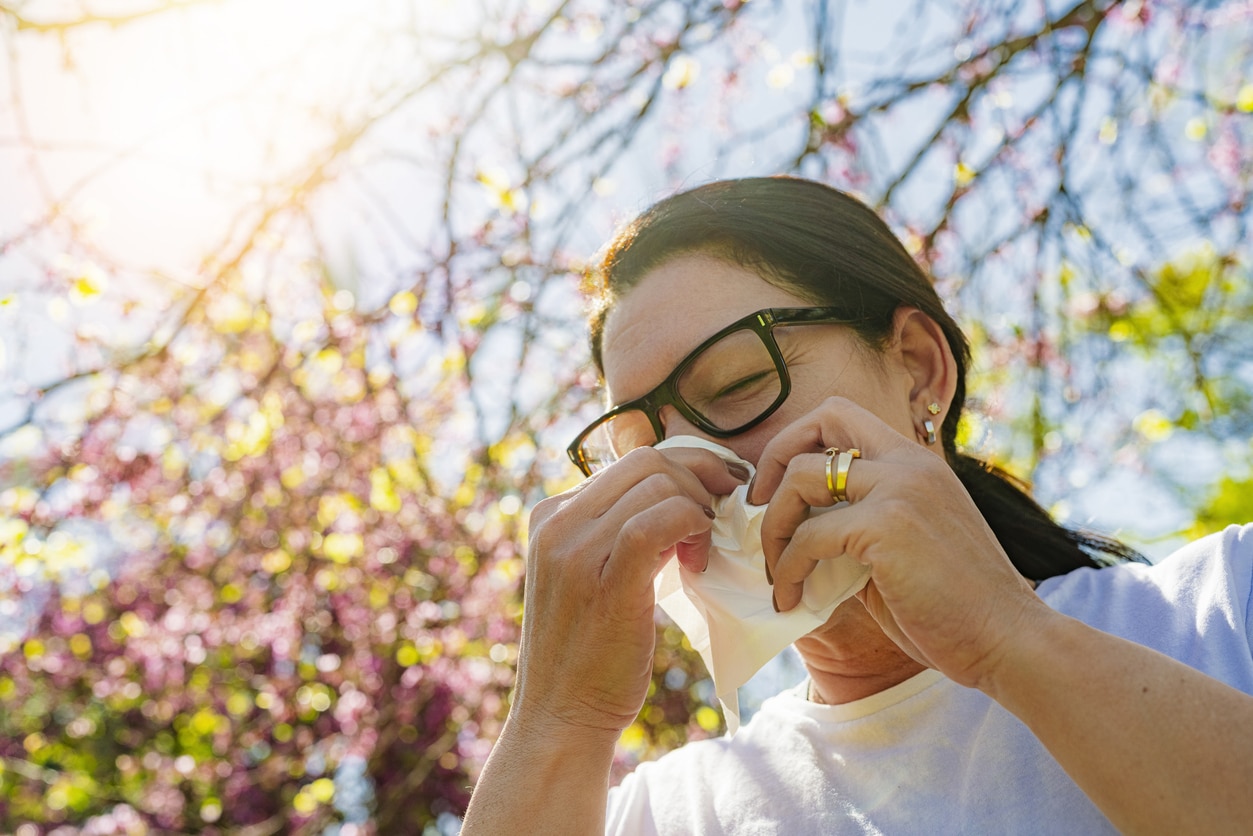Allergy season runs from spring to fall. In Indiana, that usually means tree pollen in the spring, grass pollen in the summer and weed allergies in the fall. If you’re one of the over 100 million people in the United States with allergies, you know how pesky they can be. You might even try to hide inside with the doors locked and windows closed.
While severe allergies are certainly intrusive, there are ways you can manage them to make the most of Fort Wayne’s warmer months.
1. Take an Allergy Test

An allergy test pinpoints exactly what you’re allergic to. While you might assume pollen is your only trigger, other allergens, like dust mites or pet dander, could also contribute. Even a mild allergy can feel much worse when combined with another. Identifying all your triggers helps you create a more effective plan to minimize exposure.
2. Check Pollen Counts
The Weather Channel releases a three-day allergen count tracking tree, grass and weed pollen. If the pollen count is high in your area, consider swapping outdoor adventures with indoor activities like reading or seeing a movie.
3. Take Daily Allergy Medication
Daily allergy medication provides short-term relief for allergy symptoms. You can grab over-the-counter antihistamines, decongestants and eye drops or ask for a prescription medication for severe symptoms.
4. Minimize Contact With Non-Pollen Allergens
If an allergy test reveals a sensitivity to other allergens, it’s crucial to avoid them just like you do with pollen. A few common allergens include:
- Dust mites
- Pet dander
- Stinging insects
- Certain medications
- Certain foods
Multiple allergy triggers mean you need a multi-faceted approach. For example, if you’re allergic to pet dander and pollen, bathe and brush your pets regularly, put allergy screens on your windows, shower daily and clean your house frequently to reduce allergen exposure.
5. Consider Long-Term Treatment
Long-term treatment options like immunotherapy slowly decrease your symptoms via injections containing increasing doses of the allergens you’re sensitive to. Most immunotherapy treatments take between three and five years. While that sounds like a long time, the relief is worth it.
For more information on managing your allergies, contact Ear, Nose & Throat Associates today.